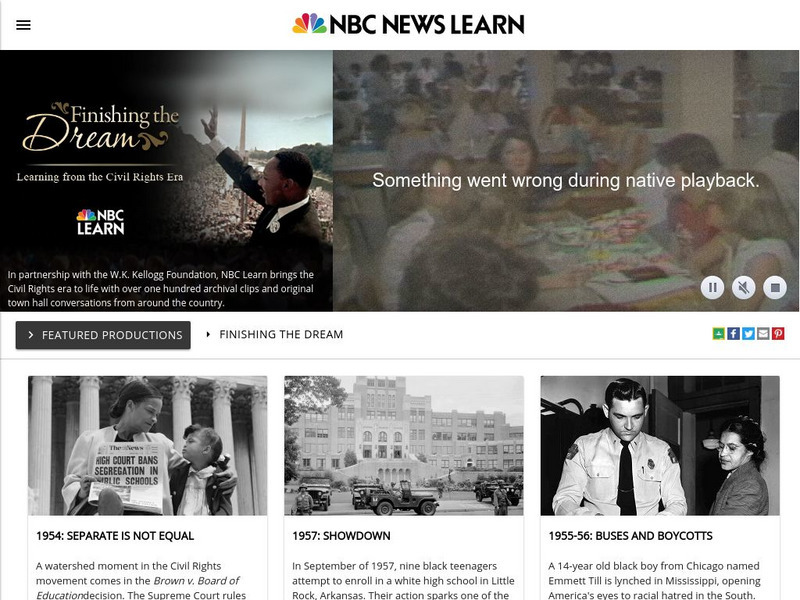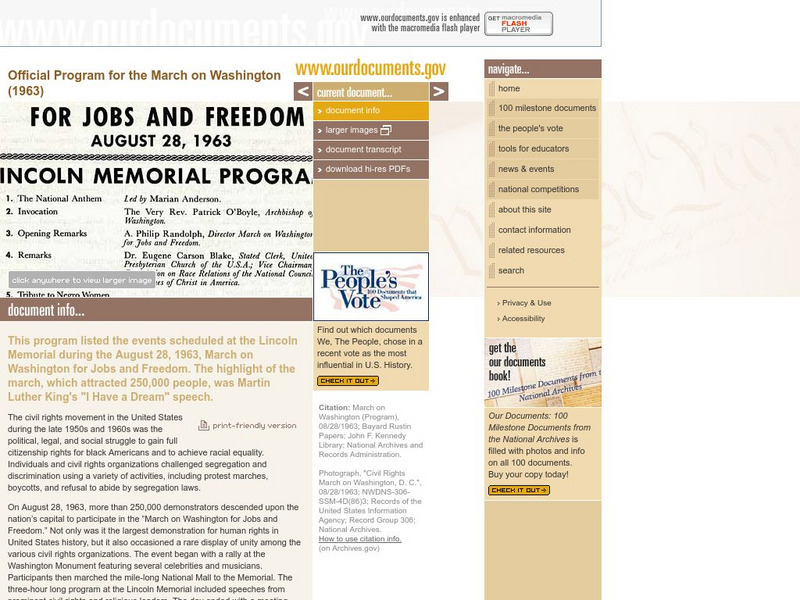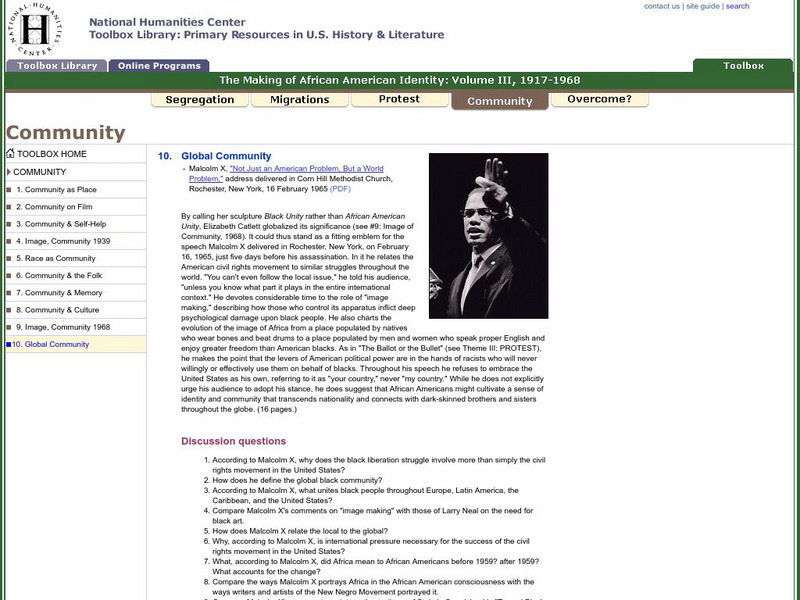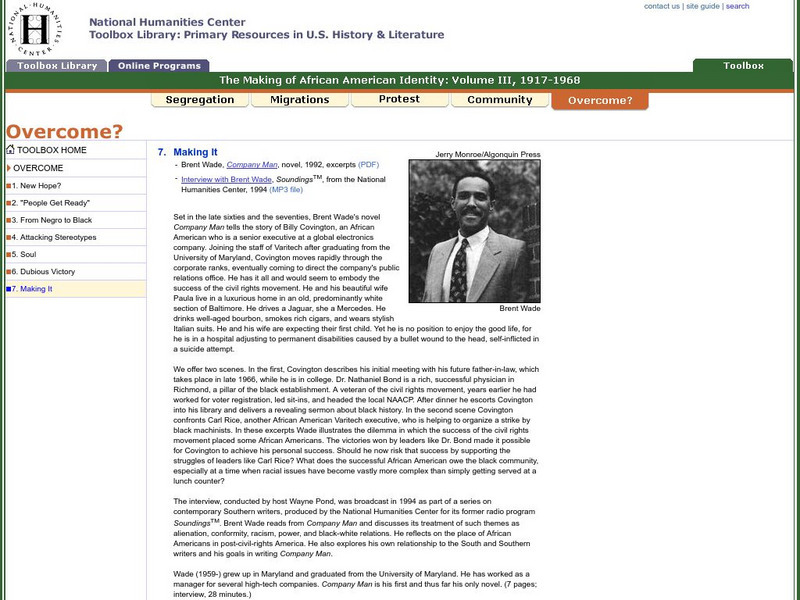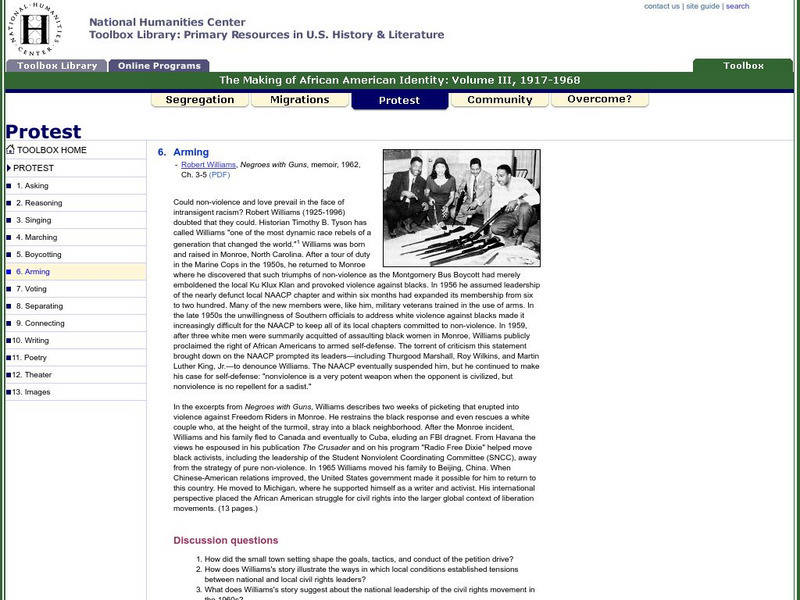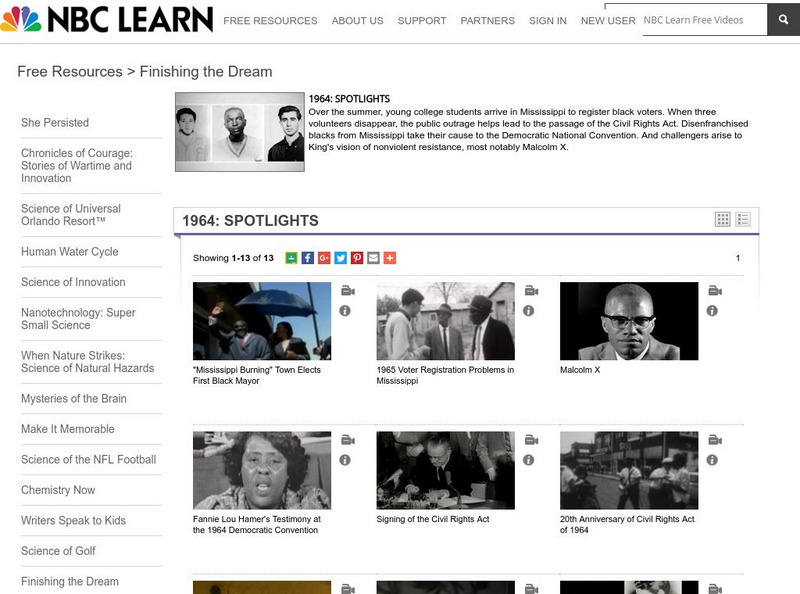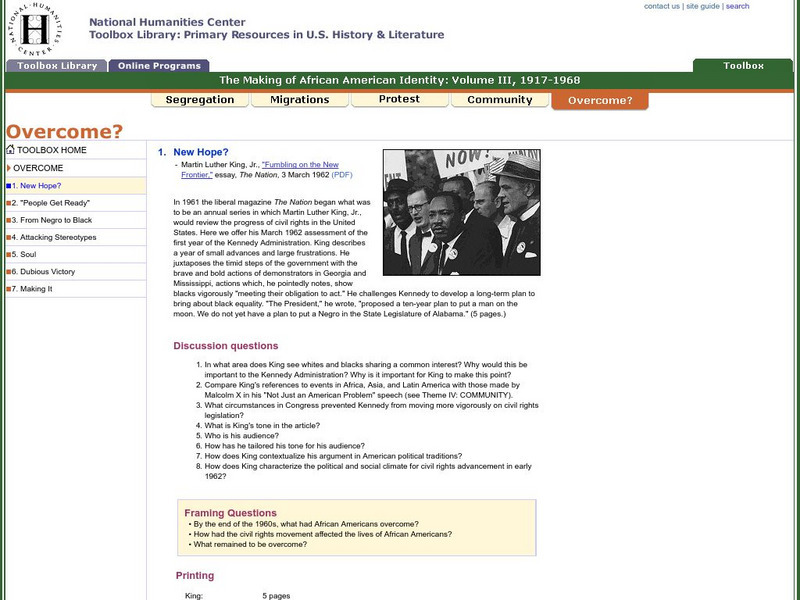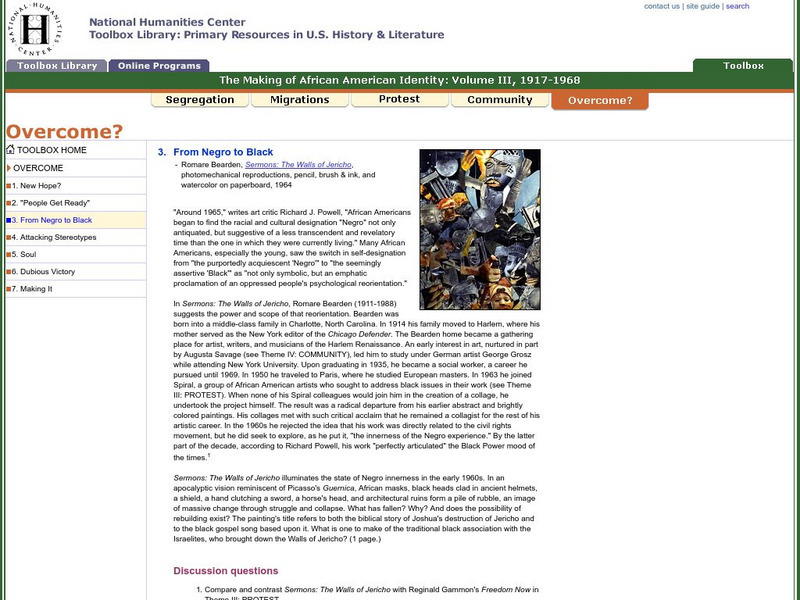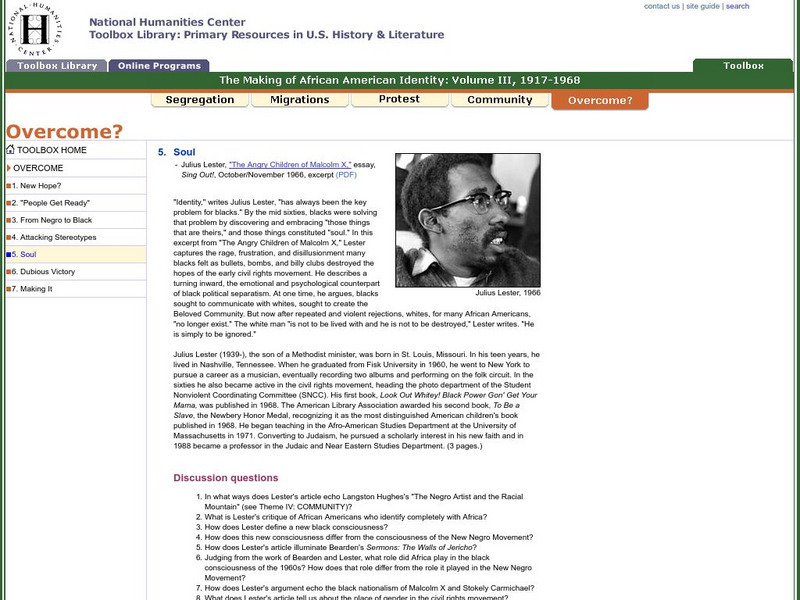PBS
Pbs Learning Media: Fannie Lou Hamer Civil Rights Movement in Rural Mississippi
A collection that uses primary sources to explore Fannie Lou Hamer and the civil rights movement in rural Mississippi.
Gilder Lehrman Institute of American History
Gilder Lehrman Institute: The Civil Rights Movement: Major Events and Legacies
[Free Registration/Login Required] An essay that speaks of the major events and legacies of the Civil Rights Movement.
University of Groningen
American History: Documents: George C. Wallace Speech: The Civil Rights Movement
View the complete speech by Alabama governor George Wallace condemning the Civil Rights Act.
PBS
Pbs Learning Media: American Exp: Southern Response to Civil Rights Speech, 1948
In response to Harry Truman's views of civil rights, a Democrat from Mississippi voices his displeasure in the concept of a Civil Rights Movementto grant equal freedoms to all citizens of the United States.
National Humanities Center
National Humanities Center: Toolbox Library: Making of African American Identity: Volume Iii: 1917 1968: Overcome?
Primary resource material explores the outcome of civil rights protests and the Civil Rights Movement and examines what remains yet to overcome. Links to supplemental materials, discussions questions and notes.
Teaching American History
Teaching American History: Civil Rights Act of 1957
Find the text of the Civil Rights Act of 1957.
NBC
Nbc Learn: Finishing the Dream
A collection of over one hundred archival video clips highlighting significant events in the history of the Civil Rights Movement since the Brown v. Board of Education Supreme Court decision in 1954. There are ten collections covering...
US National Archives
Our Documents: Official Program for March on Washington(1963)
Contains a copy of the original program for the March on Washington that featured Martin Luther King. Provides a summary of the civil rights movement at that time.
PBS
Pbs Learning Media: Primary Source Set: The Black Power Movement
This collection uses primary sources to explore the Black Power Movement.
PBS
Pbs: American Experience: The Murder of Emmett Till
The murder of Emmett Till was a major catalyzing event in the Civil Rights Movement. Here you will find extensive information on the murder, trial, and the ramifications of both.
National Humanities Center
National Humanities Center: Toolbox Library: Global Community, Making of African American Identity: V. 3
On February 16, 1965, in Rochester, New York, Malcolm X delivered a speech that placed African American in a global black community. Just five days before his assassination, he relates the American civil rights movement to similar...
National Humanities Center
National Humanities Center: Toolbox Library: Making It, Making of African American Identity: V. 3
Excerpts from a novel and an interview that illustrate where the success of the civil rights movement left some middle class African Americans. They explore the obstacles the civil rights movement had to overcome and the movement's...
National Humanities Center
National Humanities Center: Toolbox Library: Making of African American Identity: Volume Iii: Community
Series of 10 primary resources explores African American identity from 1917 to 1968, examining the changing notions of identity and affects on the definition of African American community.
National Humanities Center
National Humanities Center: Toolbox Library: Arming, Making of African American Identity: V. 3
This resource offers a memoir that examines the role of armed self-defense in the civil rights movement. An excerpt from the text "Negroes with Guns", by Robert Williams is made available here, describing his approach towards civil...
American Rhetoric
American Rhetoric: John F. Kennedy: Civil Rights Address
This is the text and audio of President Kennedy's address to the nation concerning Civil Rights delivered on June 11, 1963.
National Humanities Center
National Humanities Center: Toolbox Library: Making of African American Identity: Volume Iii, 1917 1968: Protest
A collection of 13 primary resources with questions for discussion and links to supplemental material about the various forms of protest undertaken by African Americans in pursuit of civil rights and how it helped shape identity.
NBC
Nbc Learn: Finishing the Dream: 1964: Spotlights
A collection of archival video clips highlighting the African American struggle for equal voting rights in 1964. Looks at the Mississippi Freedom Summer where college students helped to register black voters, the murder of three of those...
National Humanities Center
National Humanities Center: Toolbox Library: New Hope?, Making of African American Identity: V. 3
An article that critiques the early civil rights efforts of the Kennedy administration. It explores the obstacles the civil rights movement had to overcome and the movement's effect on the lives of African Americans.
National Humanities Center
National Humanities Center: Toolbox Library: From Negro to Black, Making of African American Identity: V. 3
A painting that expresses the darkening hopes of the civil rights movement. It explores the obstacles the civil rights movement had to overcome and the movement's effect on the lives of African Americans.
National Humanities Center
National Humanities Center: Toolbox Library: Soul, Making of African American Identity: V. 3
An article that expresses the late 1960s disillusionment of the civil rights movement. It explores the obstacles the civil rights movement had to overcome and the movement's affect on the lives of African Americans.
National Humanities Center
National Humanities Center: Toolbox Library: Singing, Making of African American Identity: V. 3
An analysis of the role music played in the civil rights movement. The well known spiritual, "We Shall Overcome," is referenced as playing a key role in supporting this movement.
National Humanities Center
National Humanities Center: Toolbox Library: Desegregation Integration, Making of African American Identity: V.3
This resource presents James Farmer (1920-1999), a major figure in the civil rights movement of the 1950s and '60s, and the distinction he draws between integration and desegregation, two terms often used interchangeably and often confused.
PBS
Pbs: African American World History
Featuring an excerpt from a memoir written by Ruby Bridges telling of her experience as the first African American child to attend an all white elementary school in New Orleans in the year 1960.
University of Michigan
Kellogg African American Health Care Project: William G. Anderson
Interview with Dr. William Anderson, first president of the Albany Movement. Picture, biographical information and links to 40 other interviews with black medical personnel about their experiences with discrimination.





